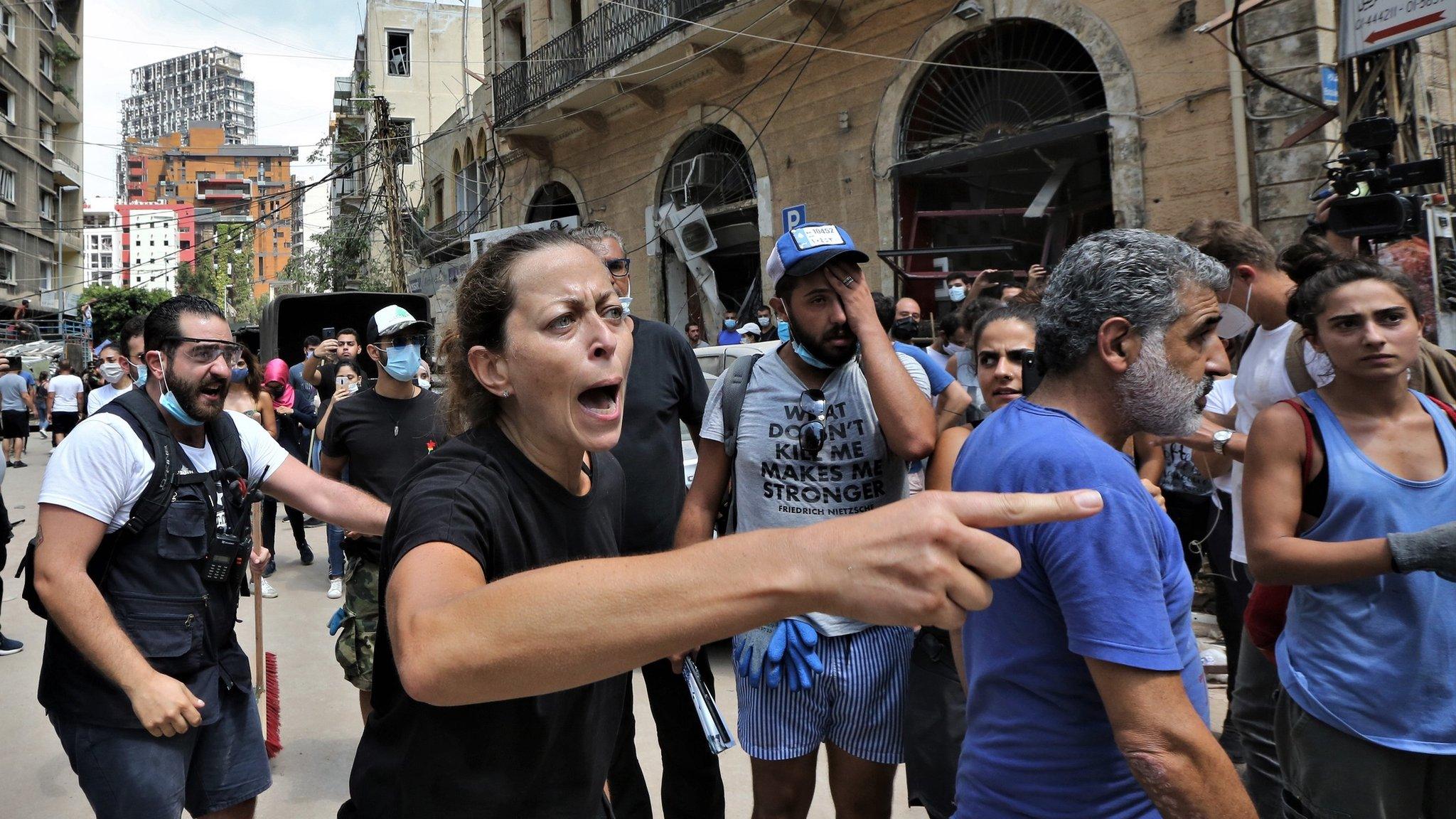Beirut explosion: Rescuers investigate ‘heartbeat in the rubble’
- Published
Rescuers remove rubble in the hope of finding someone alive
Rescuers in Beirut are continuing to search through the rubble of a building amid reports a person could be alive, one month after a massive blast devastated the Lebanese capital.
Specialist sensor equipment was sent to the Mar Mikhael area after unconfirmed reports that a heartbeat was detected.
The search was initially suspended overnight, but volunteers continued to work by hand, reports say.
At least 190 people died when 2,750 tonnes of ammonium nitrate detonated.
Some 300,000 people were left homeless by the blast on 4 August.
There has been outrage that so much hazardous material was stored unsafely in a warehouse in the city's port, which lies close to many residential areas.
The Lebanese government's resignation shortly afterwards failed to pacify protesters, who clashed with police in the city for several nights.
In a separate development, four containers with 4.3 tonnes of ammonium nitrate were found on Thursday outside Beirut's seaport, the army said.
It said its specialists examined the containers, but gave no further details.
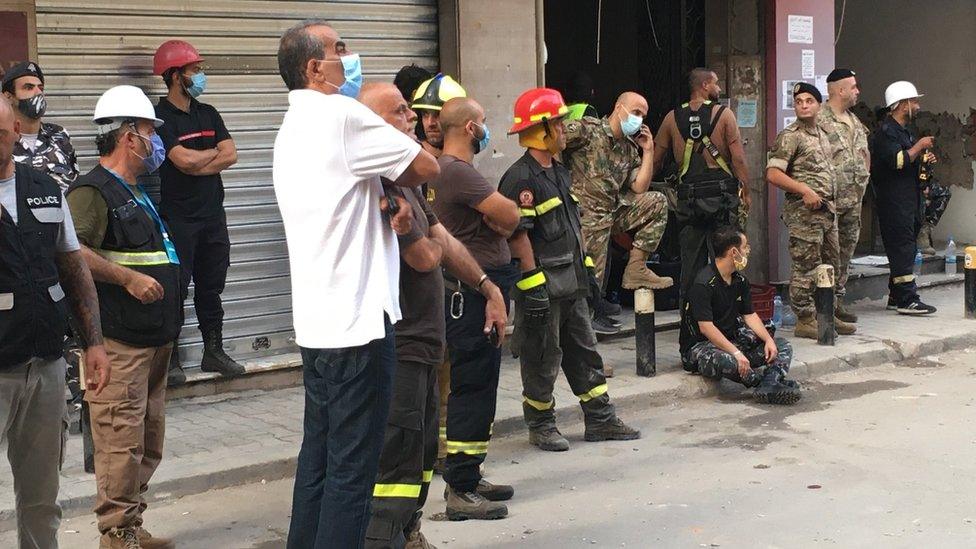
There are frequent calls for silence so that rescuers can listen for signs that someone is still alive
What's the latest from the scene?
Hopes were high on Thursday that a rescue team from Chile would find someone alive under the rubble before efforts were paused due to fears the building could collapse.
On Friday Chilean and Lebanese workers continued removing rubble from the building where crowds have again gathered but the signs of life are diminishing.
"We have excavated rubble but we haven't reached a conclusion yet," George Abou Moussa of Lebanon's civil defence told AFP news agency.
The pulse, first detected on Thursday, had slowed significantly on Friday, rescue coordinator Nicholas Saade told AFP.
"After removing the big chunks we scanned again for heartbeats or respiration, it showed low beat/respiration levels of seven per minute. The reading before was about 16 to 18," he said.
Rescue workers said there may also be a dead body under the rubble of the building, reports Reuters news agency.
One volunteer told CNN that rescuers had detected a heartbeat signal at another location, external under the rubble.
Mansour Al Asmat said that workers are certain a body was under the collapsed building, but that person may not be alive.
What sparked the search?
The rescuers were passing the building on Wednesday night when their dog gave a sign there was a person alive inside.
On returning on Thursday the dog went to the same place and gave the same sign. The group then used a scanner to search for a heartbeat or a breath from within, and came with equipment to dig down into the rubble.
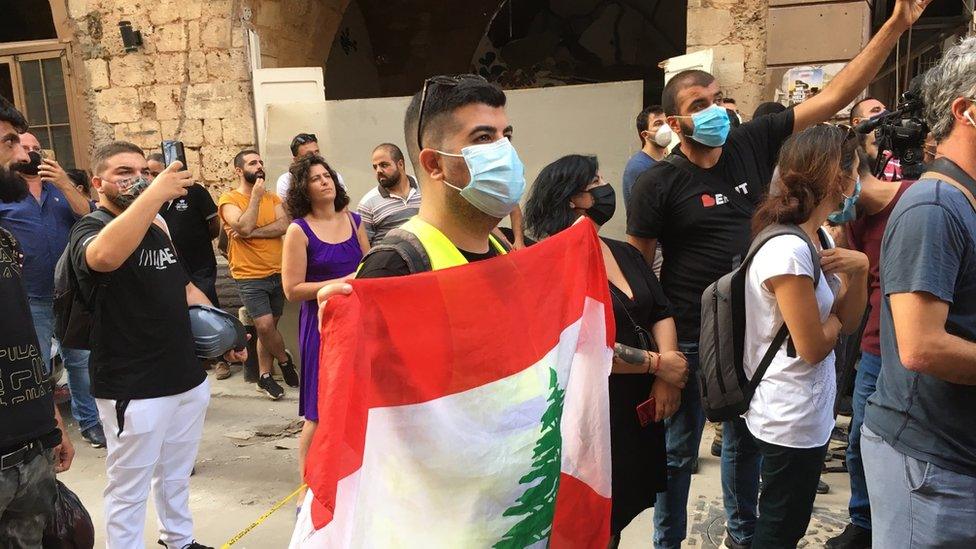
People at the scene are hoping for a miraculous story of survival
The rescuers split into teams of seven to move the debris piece by piece, due to the risk of further damage. Every so often there were calls for silence so the rescue team could listen intently, the BBC's Orla Guerin reported from the scene, external.
Red Cross staff set up a tent with floodlights and supplies, and army, fire service and volunteer rescuers are also on the scene.
Allow X content?
This article contains content provided by X. We ask for your permission before anything is loaded, as they may be using cookies and other technologies. You may want to read X’s cookie policy, external and privacy policy, external before accepting. To view this content choose ‘accept and continue’.

The Chilean rescuers arrived in Lebanon on 1 September. According to a local source, they have highly sensitive equipment which can detect breathing at a depth of 15m (49ft).
Mar Mikhael was one of the areas worst hit by the blast wave.
It is a historic neighbourhood that faces the port. It was famous for its night life before the disaster.

More on the explosion in Beirut

- Published10 May 2013
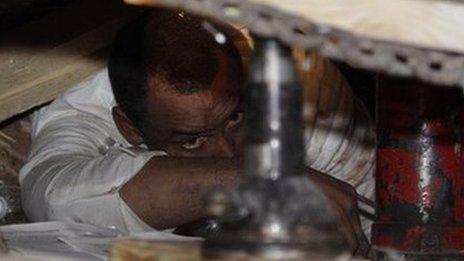
- Published5 August 2020

- Published11 August 2020
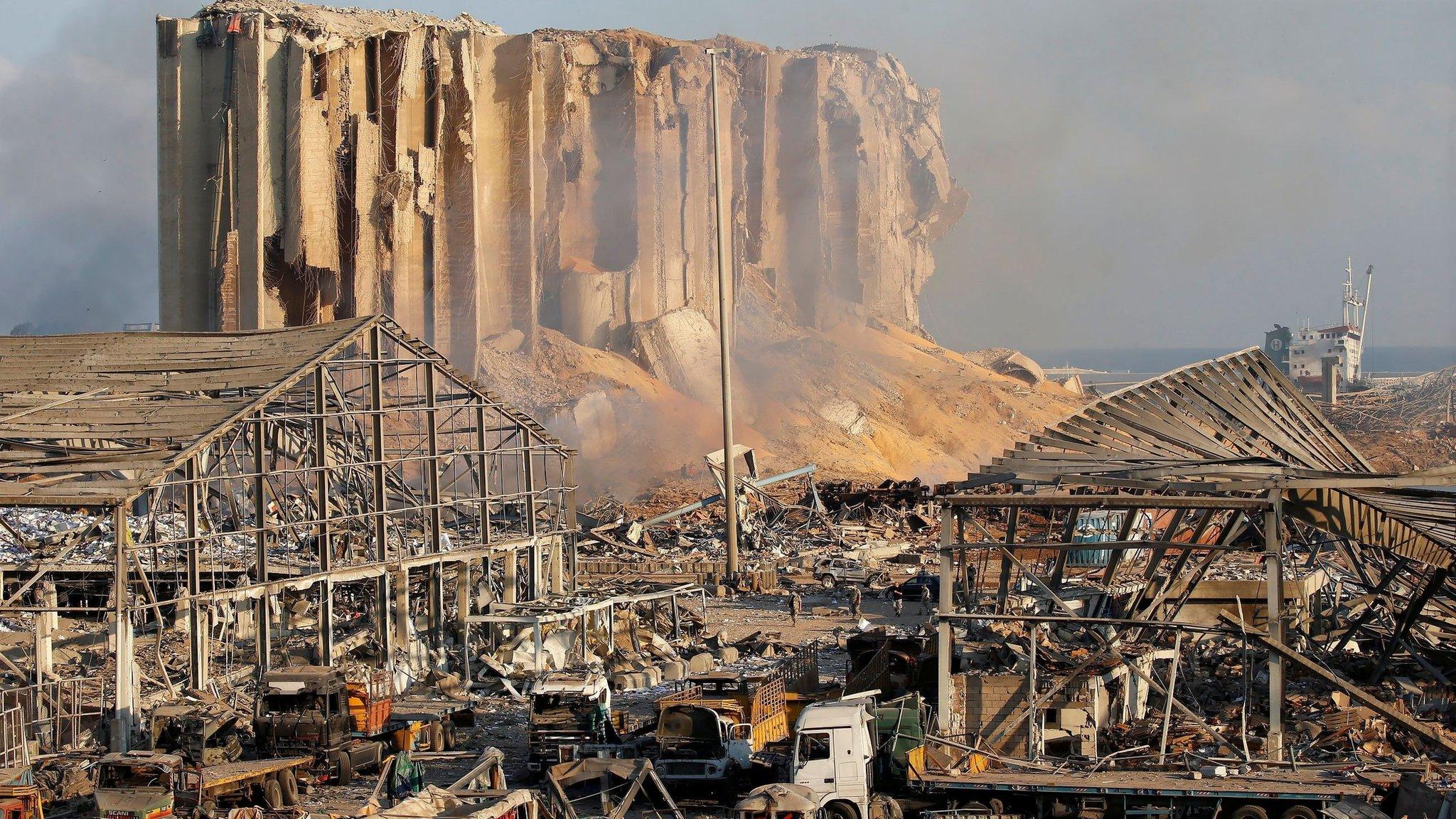
- Published7 August 2020
